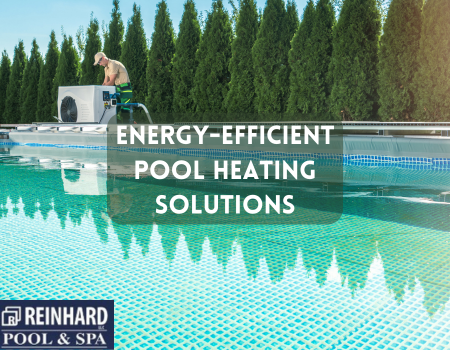A swimming pool is a fantastic addition to any home, offering relaxation, recreation, and a place to gather with family and friends. However, maintaining a comfortable water temperature can be costly, especially in cooler climates. Traditional pool heating methods often consume large amounts of energy, increasing utility bills and environmental impact. Fortunately, energy-efficient pool heating solutions are now available, allowing homeowners to enjoy warm water while minimizing costs and reducing their carbon footprint.
 1. Solar Pool Heating
1. Solar Pool Heating
One of the most eco-friendly and cost-effective ways to heat a pool is through solar energy. Solar pool heating systems work by using solar collectors, typically mounted on a roof or a sunny area, to absorb heat from the sun and transfer it to the pool water.
Benefits of Solar Pool Heating:
- Energy Savings: Once installed, solar heaters use free solar energy, drastically reducing heating costs.
- Environmentally Friendly: Solar heating systems produce zero emissions and rely on renewable energy.
- Durability: Solar heating systems generally have a long lifespan, often lasting 15–20 years with minimal maintenance.
Considerations:
- The efficiency of a solar heating system depends on the amount of sunlight your location receives.
- Initial installation costs can be high, though the long-term savings outweigh the upfront expense.
2. Heat Pumps
Heat pumps are an energy-efficient option that works by extracting heat from the surrounding air and transferring it to the pool water. Unlike traditional gas heaters, which generate heat, heat pumps move existing heat, making them more efficient.
Benefits of Heat Pumps:
- Lower Operating Costs: Although they use electricity, heat pumps consume significantly less energy than gas heaters.
- Consistent Performance: They maintain steady water temperatures, making them suitable for year-round use in moderate climates.
- Long Lifespan: With proper maintenance, heat pumps can last 10–15 years.
Considerations:
- Heat pumps are most effective in areas with warm or mild climates since they rely on air temperature to operate efficiently.
- They have a slower heating process compared to gas heaters.
3. Solar Pool Covers (Solar Blankets)
A simple yet highly effective way to keep pool water warm is by using a solar pool cover. These covers trap heat from the sun and prevent heat loss due to evaporation.
Benefits of Solar Pool Covers:
- Energy Conservation: Covers retain heat, reducing the need for additional heating.
- Reduced Evaporation: They prevent water loss, reducing the need for refilling and chemical rebalancing.
- Affordability: Solar covers are inexpensive compared to other heating options and offer a great return on investment.
Considerations:
- They need to be manually removed and replaced each time you use the pool, unless you invest in an automatic cover.
- Solar covers are most effective when used in combination with another heating system.
4. Gas Heaters with Improved Efficiency
While traditional gas heaters are not the most energy-efficient option, newer high-efficiency models offer better performance with reduced energy consumption. Modern gas heaters use advanced heat exchangers that maximize heat transfer while minimizing fuel usage.
Benefits of High-Efficiency Gas Heaters:
- Quick Heating: Gas heaters can rapidly raise water temperature, making them ideal for pools that are not used regularly.
- Works in Any Climate: Unlike solar or heat pump systems, gas heaters operate efficiently in all weather conditions.
Considerations:
- Gas heaters are more expensive to operate than solar or heat pumps.
- They produce greenhouse gas emissions, making them less environmentally friendly.
5. Combination Systems for Maximum Efficiency
Many homeowners are now opting for hybrid pool heating systems that combine two or more heating methods for optimal efficiency. For example, pairing a solar heating system with a heat pump can provide reliable heating while keeping operational costs low. Similarly, using a solar cover in conjunction with any heating system enhances heat retention and reduces overall energy consumption.
Benefits of Hybrid Pool Heating Systems:
- Greater Energy Savings: Combining methods reduces reliance on any one system, cutting costs.
- Extended Pool Season: Efficient heating ensures comfortable swimming temperatures for longer periods.
- More Control: Homeowners can switch between systems based on energy availability and weather conditions.
Keeping your pool warm doesn’t have to mean high energy bills or harming the environment. By choosing energy-efficient pool heating solutions like solar heaters, heat pumps, and solar covers, you can enjoy a comfortable swimming experience while reducing costs and your carbon footprint. For the best results, consider a combination of these methods to create a heating system that is both cost-effective and sustainable. With the right approach, you can extend your swimming season without breaking the bank.
